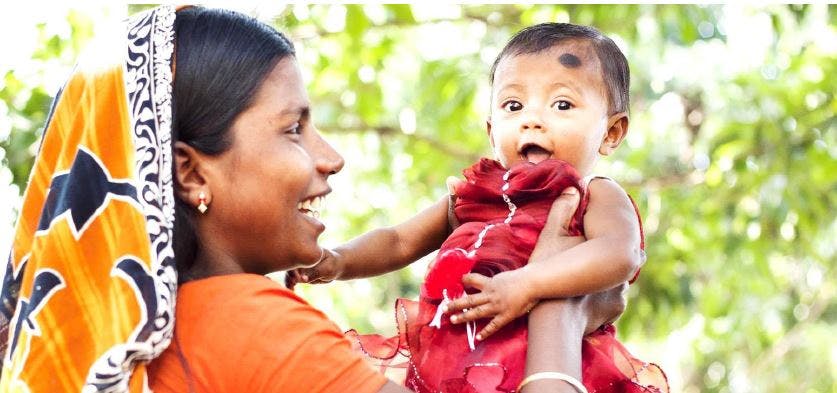By Kirsten Gagnaire, Executive Director, MAMA
This Mother’s Day marked the 3rd anniversary of MAMA – the Mobile Alliance for Maternal Action.
The reality is that nearly 800 women die every day because of complications from pregnancy or childbirth – but nearly 1 billion women worldwide own mobile phones, providing an important opportunity to put health messages directly into women’s hands so they can care for themselves and their families during one of the most critical times in their lives.
Three years since its launch, MAMA uses mobile technologies to deliver medically-sound health messages to 1.2 million women in 70+ countries through direct programs in Bangladesh, South Africa, and India and through the broader MAMA community worldwide.
As we head into our fourth year, we took a moment to look back at our top 10 moments to date as we work to improve maternal, newborn, and child health worldwide.
1. Launch by former Secretary of State Hillary Rodham Clinton. On Mother’s Day 2011, then Secretary of State Clinton launched the MAMA partnership to leverage mobile technology to deliver health information to the mothers who need it most. MAMA is a public-private partnership of the US Agency for International Development (USAID), Johnson & Johnson, the United Nations Foundation, the mHealth Alliance, and Baby Center.
2. Hiring a global team. MAMA has grown to include a full team with program, administrative, research, monitoring and evaluation, and communications and marketing experience. Today the MAMA Global team is poised to lead our strategic growth as we welcome new partners and further harness the power of mobile technology to help women access health information.
3. Receiving the Fast Company Service By Design Award. In 2012, MAMA was named a Fast Company Innovation By Design Award winner in the Service Design Category, an important recognition by a respected global brand that mHealth has the potential to transform health care for those who need it most.
4. Launch of flagship program in Bangladesh. After a pilot phase with approximately 1,500 moms and household decision-makers, our first program – Aponjon, as it’s known in-country – launched in Bangladesh in December 2012. MAMA Bangladesh is implemented by the social enterprise, Dnet, who secured a number of critical partnerships that span government agencies, telecommunications operators, outreach partners, and the private sector.
5. Launch of South Africa national program. There were many reasons why we chose South Africa. More South Africans use a mobile phone than watch television or listen to the radio, and there are more SIM cards in South Africa than people. At the same time, South Africa’s maternal and infant mortality is unacceptably high. Up to 40% of maternal deaths in South Africa are HIV/AIDS-related. Addressing maternal and child mortality is one of the four priorities of the South African Department of Health.
6. Expansion of MAMA messages content. We launched MAMA with a core set of medically-sound, age and stage-based messages to help an expectant mother from the beginning of her pregnancy through her child’s first year of life. Over time, we expanded our content to include messages on preventing mother-to-child HIV transmission, post-partum family planning, and years two and three of a child’s development. We also translated all of our content into Spanish.
7. Global learning at scale. Part of our success has been our Global Learning program, where we have been able to share information with, and learn from, many people working hard to improve maternal, newborn, and child health. More than 300 organizations from 70+ countries have downloaded the MAMA messages and they have been translated into 21 languages. We’ve also held online learning courses, workshops, and other opportunities to share learnings.
8. Multi-faceted partnerships in India. Multi-faceted partnerships will only increase our impact. As we prepare for our program launch in India, we have brought a dynamic group of partners to bring MAMA and a suite of maternal and child health focused mobile tools to urban slums and front line health workers in six states across India.
9. Reaching 500,000th subscriber in Bangladesh. In the 15 months since its launch, MAMA Bangladesh has grown to serve 500,000 mothers and families and has trained several thousand community agents and brand promoters who assist subscribers in signing up for the service.
10. Transition to long-term, sustainable initiative. When MAMA was launched everyone thought it would end after three years. It is with great pride that I announce that MAMA is now transitioning into a long-term, sustainable initiative. I’m proud of the contributions made by MAMA and look forward to seeing MAMA through its next several years.
Editor’s Note: To learn more, visit mobilemamaalliance.org and follow @mamaglobal on Twitter.



 View All Blog Posts
View All Blog Posts